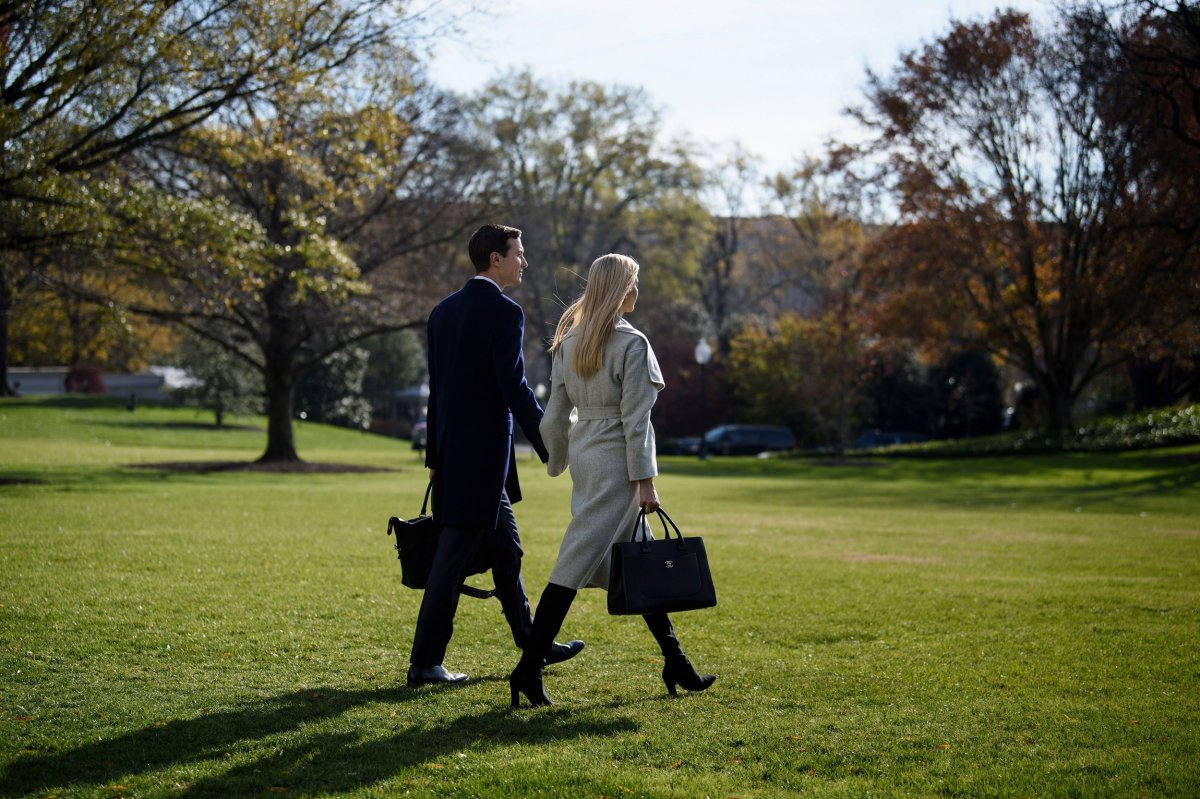Supreme Court Justice Ruth Bader Ginsburg once referred to the idea that the true symbol of the United States is not a bald eagle, but rather a pendulum. "When the pendulum swings too far in one direction, it will go back."
Although Justice Ginsburg was commenting on politics, the principle behind her observation is rooted in science. Like a pendulum, the scientific phenomenon of resonance shows us that as waves of sound, light or water progress and gather momentum, each high becomes higher, followed by a lower low, and so on. Eventually the circumstances amplify to the extreme: broken glass or a tsunami, for example.
The extremes to which our political discourse has evolved in recent years make one wonder if America is not experiencing a political resonance. Case-in-point is the continuing saga of Jared Kushner's and Ivanka Trump's security clearances.
Kushner's and Trump's security clearances are at best a sideshow and at worst a symptom of just how polarized and distrustful American politics has become. With each maneuver one political party perceives the other to make, the opposing party feels the need to respond with increasingly inflammatory rhetoric and actions. Security clearances—once a strictly non-partisan national security issue—have become a casualty of this toxic dynamic.
The result is not only disturbing, but dangerous. We in America have created such a hyper-charged climate that nothing is safe from political influence, real or perceived, and the compensatory behavior it engenders from political opponents. Transparency, objectivity, and good policy all take a back-seat to scoring political points with a fringe party base.
There's no question that external influence over the security clearance process—the kind President Trump allegedly exerted—creates an appearance of impropriety that is unseemly. On the flip side, however, there have been no shortage of complaints from Trump Administration officials about career bureaucrats weaponizing the system in furtherance of their own political agenda. It is possible that President Trump ordered the clearances granted because he legitimately believed they were being unfairly stymied.

Ultimately, security clearance is a privilege, not a right. In the Kushner-Trump case, claims of nepotism are a red herring given the president's unfettered discretion to grant or deny security clearances. But if the system is going to work, and if the American public is to have faith that it does work (which is, arguably, almost as important,) presidents should exercise restraint in intervening in a process where all security clearance applicants should be held to the same standards. Similarly, those career officials charged with adjudicating security clearance cases must ensure that their own personal politics and biases play no role in their decision-making. Substantiated claims that a career official misused the security clearance system require swift disciplinary action.
When security clearance adjudications are done right, and by those furthering good policy over good politics, there's little chance that anything can be misinterpreted, politicized, unduly influenced, or weaponized. But disrupting resonance in our current climate will require buy-in on both sides of the aisle that certain issues are off limits when it comes to political posturing. Security clearances are an ideal place to start, because what impacts one political party today, will impact the other tomorrow.
Aileen Xenakis is Associate Counsel at Bigley Ranish, LLP, a law firm exclusively practicing federal security clearance defense.
The views expressed in this article are the author's own.
Uncommon Knowledge
Newsweek is committed to challenging conventional wisdom and finding connections in the search for common ground.
Newsweek is committed to challenging conventional wisdom and finding connections in the search for common ground.
About the writer
To read how Newsweek uses AI as a newsroom tool, Click here.








